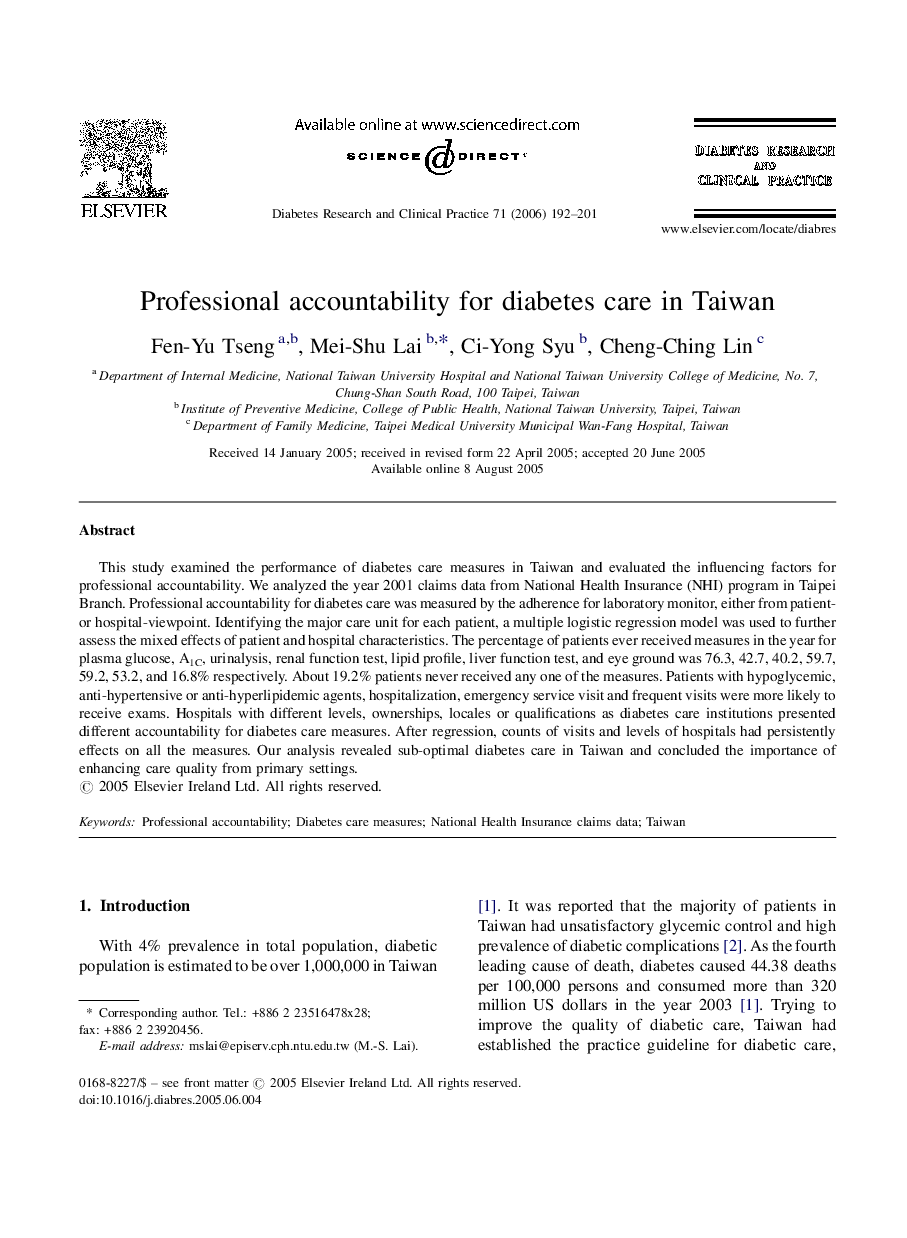| Article ID | Journal | Published Year | Pages | File Type |
|---|---|---|---|---|
| 2799268 | Diabetes Research and Clinical Practice | 2006 | 10 Pages |
This study examined the performance of diabetes care measures in Taiwan and evaluated the influencing factors for professional accountability. We analyzed the year 2001 claims data from National Health Insurance (NHI) program in Taipei Branch. Professional accountability for diabetes care was measured by the adherence for laboratory monitor, either from patient- or hospital-viewpoint. Identifying the major care unit for each patient, a multiple logistic regression model was used to further assess the mixed effects of patient and hospital characteristics. The percentage of patients ever received measures in the year for plasma glucose, A1C, urinalysis, renal function test, lipid profile, liver function test, and eye ground was 76.3, 42.7, 40.2, 59.7, 59.2, 53.2, and 16.8% respectively. About 19.2% patients never received any one of the measures. Patients with hypoglycemic, anti-hypertensive or anti-hyperlipidemic agents, hospitalization, emergency service visit and frequent visits were more likely to receive exams. Hospitals with different levels, ownerships, locales or qualifications as diabetes care institutions presented different accountability for diabetes care measures. After regression, counts of visits and levels of hospitals had persistently effects on all the measures. Our analysis revealed sub-optimal diabetes care in Taiwan and concluded the importance of enhancing care quality from primary settings.
